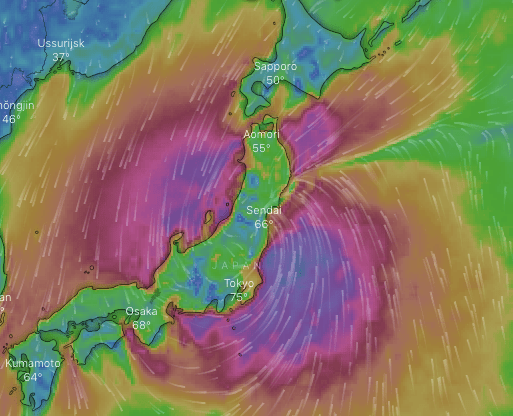Developing Intuition about the Japanese Particles
The following question was asked by BK2
I learnt all the vocab for Genki 1 & 2, what’s next?
Sure, kanji and vocab are important, but you need to have a really solid understanding of the particles (grammar particles / じょし = 助詞 ) How come? In order to think like a Japanese person you must master the segmentation of concepts and the bends in the river of a conversation. Joshi (grammar particles) are different than prepositions in English. You’ve probably noticed that you say 「東京に行きます。」but if we were to remove all the Japanese words and leave the indivisible smallest grammatical unit in the sentence (the particle に = ni) then we have Tokyo に go.
Generally, every single sentence in Japanese, unless surrounded by abundant contextual phrases or other speakers’ words and sentences, will require some set of the word+particle blocks and a sentence-final verb like so:
[ _____ は] [ _____に] [_____で] [ _____を] verb.
The order can be totally mixed up:
[ _____を] [ _____に] [ _____ は] [_____で] verb.
And the meaning will stay intact 100% because the particles [and verb] are what gives japanese grammar it’s scaffolding, not the phrase order.
Anticipatory Language Training
Since every Japanese sentence needs a verb at the end, you’re always waiting on that sentence-final verb to tell if you the sentence is true or false, if the ball got kicked or popped, if it was delicious or not delicious at all, etc.
Thus, Anticipatory training is really important. What is anticipatory training? When I say in English “I’ve been holding this basket for…”
You can “autocomplete” it with such phrases as: for a long time, for a friend, for 2 minutes, for no reason whatsoever.
You can see that you can already anticipate a lot of what might come: maybe a time-duration or maybe a reason (or lack of one) like doing it for a buddy.
In the same way, when you hear [ _____ は]
You must train yourself to think “With regards to ____”
“In the general orbit of ___”
“Regarding ____ (with some vagueness)”
Now this particle will slowly become more and more automatic for you (wa [topic particle]).
Same for things like [_____で] (de) the setting particle
Cafe で Book を read.
In English this reads beginning with “At the cafe…” or “With the Cafe as my primary location…”
Cafe で …
Cafe で …
Japanese speakers can anticipate the same context. This gives you something to aim for. Once you make your understanding of particles and particles + sentence-final-verb automatic, you will be crafting your own Japanese sentences with ease.
By far the best way to get good at speaking Japanese is to go to a language program where only japanese is spoken for the duration of the program (by rule and/or agreement).
The best way is immersion (but you might still rely on your mothertongue avidly, and that will take discipline to avoid using).
For people who are able to shirk using their mother tongue and are patient with themselves when trying to explain things, their Japanese ability improves dramatically.
Books after Genki I and II
Textbooks after Genki I and II include:
Tobira (Intermediate Japanese)
Kanji in Context (Has an accompanying workbook, great for Kanji study)
However, there are very few resources designed to take one all the way from beginner, through intermediate, and into the advanced levels. One potential reason is that a lot of domain-knowledge and jargon can be learned later as you need them, but a stronger reason might be the lack of curriculum-long organization targeting advanced fluency.
That’s why we’re working on Japanese Complete.
